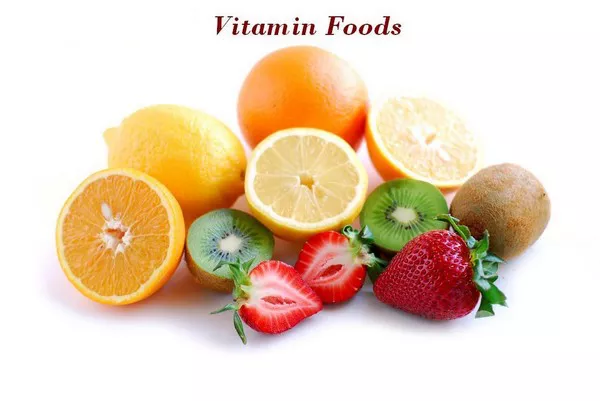Vitamins play a vital role in maintaining optimal health and well-being. While many vitamins are obtained through dietary sources, the human body is also capable of producing certain vitamins through endogenous synthesis. In this article, we will delve into the fascinating world of endogenous vitamin production, exploring which vitamins the human body can synthesize, the factors that influence synthesis, and the significance of these internally produced vitamins for overall health.
The Two Categories of Vitamins
1. Water-Soluble Vitamins
Water-soluble vitamins, including vitamin C and the B vitamins (such as Biotin, Folate, and Riboflavin), are essential nutrients that play crucial roles in various bodily processes. These vitamins are not stored in the body to the same extent as fat-soluble vitamins.
See Also: Water-Soluble Vitamins: List, Health Benefits & Food Sources
2. Fat-Soluble Vitamins
Fat-soluble vitamins, which include vitamins A, D, E, and K, are stored in the body’s fatty tissues and liver. These vitamins are essential for various bodily functions, and their absorption relies on dietary fats.
See Also: Fat-Soluble Vitamins: Types, Sources & Health Benefits
The Role of Endogenous Synthesis
1. Definition
Endogenous synthesis refers to the process by which the human body produces certain vitamins on its own, without relying solely on external dietary sources.
2. Factors Influencing Synthesis
Factors such as genetics, diet, exposure to sunlight, and overall health can influence the body’s ability to synthesize vitamins.
Vitamins the Human Body Can Produce
1. Vitamin D
Vitamin D, often referred to as the “sunshine vitamin,” is synthesized in the skin when it is exposed to ultraviolet B (UVB) sunlight. This synthesis occurs through a series of reactions that convert a cholesterol derivative into an active form of vitamin D.
2. Vitamin K
Vitamin K is known for its role in blood clotting and bone health. The body synthesizes a portion of its vitamin K requirement in the large intestine, thanks to the activity of beneficial bacteria.
The Role of Gut Bacteria
1. Vitamin K Synthesis
The gut microbiota’s role in synthesizing vitamin K highlights the symbiotic relationship between humans and the microorganisms that inhabit their digestive tract.
2. B Vitamin Production
Certain B vitamins, like Biotin and Folate, are also influenced by gut bacteria. The bacteria in the colon contribute to the synthesis of these essential nutrients.
The Impact of Diet
1. Vitamin D-Rich Foods
While the body can synthesize vitamin D, dietary sources also contribute significantly. Foods like fatty fish, fortified dairy products, and egg yolks provide supplemental vitamin D.
2. Vitamin K-Rich Foods
Although the body produces some vitamin K, dietary sources like leafy greens, broccoli, and fermented foods contribute to overall vitamin K intake.
The Importance of Sunlight
1. Sun Exposure and Vitamin D
Sunlight exposure remains a primary factor in endogenous vitamin D synthesis. Individuals with limited sun exposure may rely on dietary sources or supplements to meet their vitamin D needs.
2. Balancing Sun Safety
While sunlight is essential for vitamin D synthesis, it’s crucial to strike a balance between sun exposure and protecting the skin from harmful UV rays.
Addressing Individual Needs
1. Genetic Factors
Genetic variations can influence an individual’s ability to synthesize certain vitamins. Genetic testing and personalized recommendations are becoming increasingly valuable in addressing specific nutritional needs.
Certain medical conditions, such as digestive disorders, can impact the body’s ability to synthesize vitamins. Consulting a healthcare professional is essential for those with special dietary requirements.
Enhancing Overall Health
1. A Comprehensive Approach
Endogenous vitamin synthesis adds to the complexity of maintaining optimal health. A balanced diet, exposure to sunlight, regular exercise, and proper hydration contribute to overall well-being.
2. Professional Guidance
Consulting with a registered dietitian or healthcare provider can help individuals tailor their nutrition and lifestyle choices to support endogenous vitamin synthesis and overall health.
Conclusion
In conclusion, the human body’s capacity for endogenous vitamin synthesis highlights the intricate interplay between genetics, diet, and environmental factors. While the body can produce vitamins D and K to some extent, dietary sources and lifestyle choices significantly impact overall vitamin intake. Embracing a comprehensive approach to health, including a balanced diet, proper sun exposure, and regular healthcare consultations, can help individuals harness the benefits of endogenous vitamin synthesis while addressing their unique nutritional needs. As scientific knowledge continues to evolve, understanding the role of endogenous vitamin production contributes to a holistic approach to well-being and underscores the importance of informed choices for maintaining optimal health.


